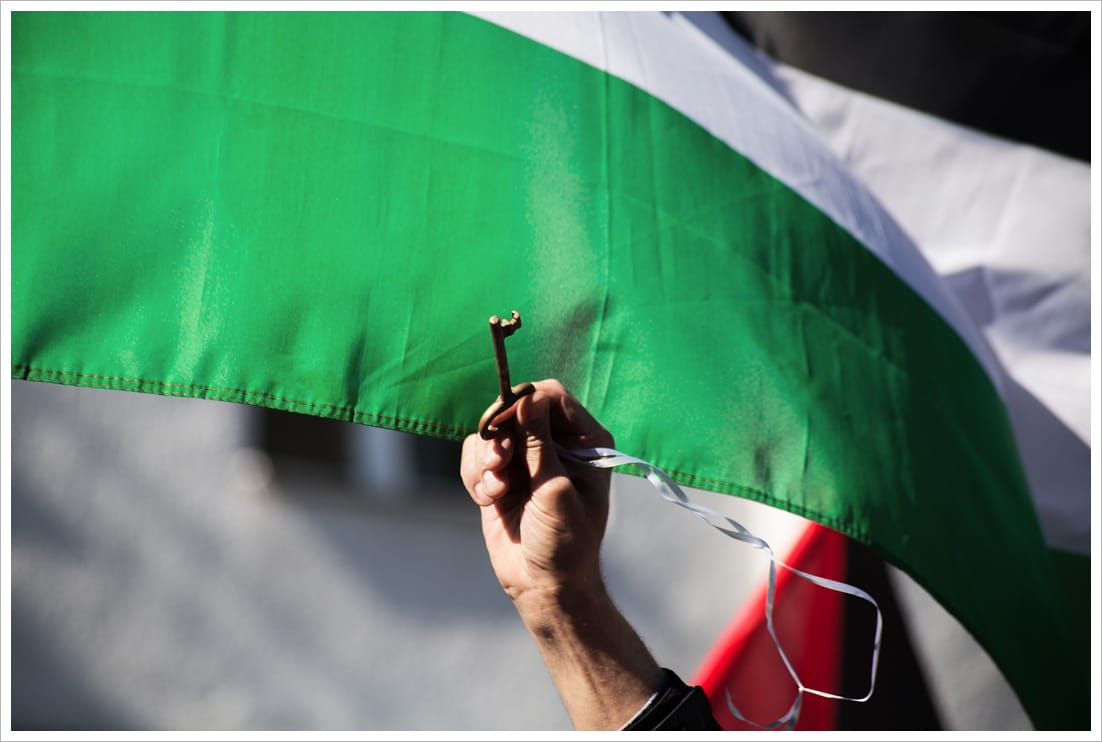
Add [email protected] to your address book so you don’t miss newsletter issues from us!
Content warning: This article briefly mentions sexual violence.
You may have observed politicians, media outlets, and indeed whole countries finally using the term “mass starvation” instead of “humanitarian crisis”… finally pointing out that the “mass starvation” is entirely human-caused… and finally pointing out that the State of Israel is causing it.
Are you feeling anger toward people who are finally speaking up… especially the most powerful? Are you wondering: “Really? Why now?”
Here’s my answer to the question of “why now”: the mass wave of powerful folks speaking up comes from the need to dominate, yet again. This is the same need that was at play when they fell all over each other to be the first with the lies: the lies of the 40 beheaded babies; the lies of the mass rapes; the lies about Hamas stealing all the aid. Many of these lies they still have not retracted, despite their role in manufacturing consent for the genocide in Palestine.
Leaders of government and media know what the word “complicity” means. So they're finally “telling it like it is”… not to take accountability, but to avoid it. I really believe that in the weeks and months ahead, media outlets will rapidly accelerate their reporting on other media outlets’ complicity in genocide. Perhaps Sky News will report on the BBC; perhaps the BBC will report on CNN; perhaps CNN will report on the New York Times. They’ll all be battling to throw each other under the bus of accountability.
But here’s what I really want you to know, and while I can’t promise it will give you hope, it’s giving me hope right now: This is not the end of the people called Palestinians, even in the face of genocide. The Palestinian diaspora still exists. The culture still exists. The memory still exists… and therefore resistance will still exist. There are people alive today who still have the keys to the houses they were forced out of during the Nakba. Those keys will be passed down… over generations, if that's how long liberation takes.
When European colonizers came to the so-called “Americas” in the 1500s, over 90% of the Indigenous peoples perished in the first 100 years alone. 50 million people died… enough to cause measurable global cooling. Yet on these lands, Indigenous peoples still exist. Indigenous culture still exists… and Indigenous memory still exists.
It would be a huge mistake to believe that the peoples of Turtle Island have been placated just because government recognition exists. It would also be a huge mistake to believe that they’ve “gotten over” having their land stolen just because “reservations” exist. Hundreds of years of colonization is simply not a long time for those with thousands of years of memory.
From that perspective, I consider the story of the so-called “Americas” to be like the story of the so-called “Middle East.” The Indigenous will go back to their homes… and they won’t be waiting for a formal right of return.
Do you want issues like this in your email inbox? Subscribe using the button below.
Know someone who needs to see this issue? Hit the “Forward” button in your email app and send this to them.
My position
My name is Chris Musei-Sequeira, and I use he/him pronouns. My mother was born in Trinidad and Tobago as a descendant of African slaves brought to the islands during the time of European colonization. She came to the United States of America (USA) at the age of 10. My father is Goan and was born in India, in Mumbai, and raised Catholic and English-speaking. He came to the USA for his graduate studies, where he met my mother.
My sister and I were born in the USA and lived a middle-class life in the suburbs of multiple American cities. I studied aeronautical engineering and technology policy in university, then worked at the Federal Aviation Administration and as an aviation consultant. I've lived in cities up and down the USA East Coast since the age of 18; I now reside in Queens, New York with my wife.
I thank Heather Luna and Lavinia Muth for showing me the importance of publicly expressing our positions. Because of our positions, all of us are very familiar with some aspects of the world while having no idea of other aspects. Positionality expresses how our individual positions affect our relationships with other people and with the world as a whole.
IMAGE SOURCE: File:Palestine Nakba Day demo in Berlin.jpg - Wikimedia Commons. (2015, May 15). https://commons.wikimedia.org/wiki/File:Palestine_Nakba_Day_demo_in_Berlin.jpg -- This file is licensed under the Creative Commons Attribution-Share Alike 2.0 Generic license. Author: Montecruz Foto.

